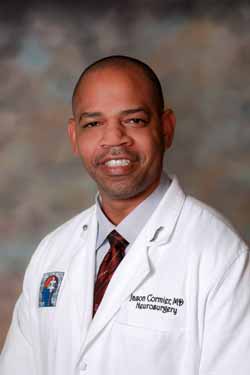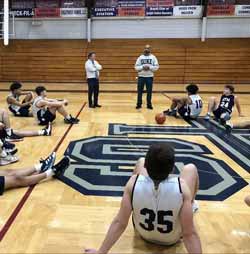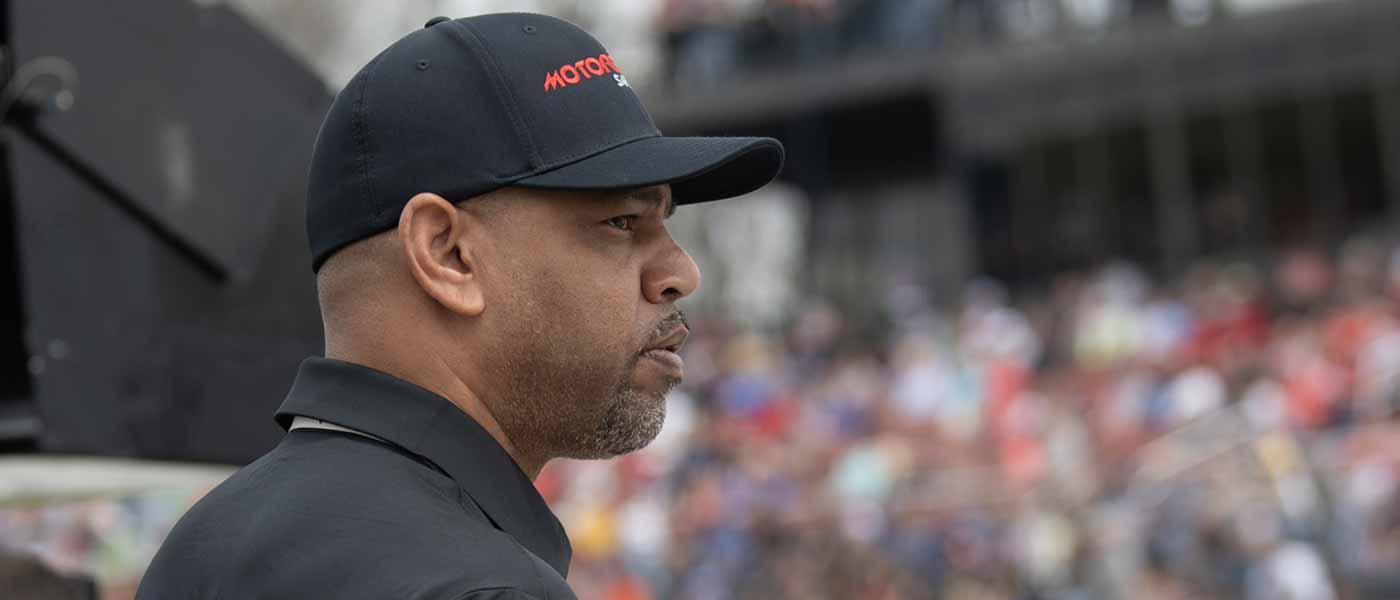Back around 1996, recent graduate and former LSU basketball player Jason Cormier was trying to figure out what’s next. He had played semi-professional basketball
and was working two jobs at the time – as a a sales associate at AutoZone and doing patient transport at the Baton Rouge General Medical Center.
 “I was just drawn to patient care, and after some time they offered me a full-time position. I thought I was on cloud 27. I thought I was a big deal. They gave me a pager, and I was working in the medical field.”
“I was just drawn to patient care, and after some time they offered me a full-time position. I thought I was on cloud 27. I thought I was a big deal. They gave me a pager, and I was working in the medical field.”
Attracted to whatever was going on behind the forbidden doors of the operating room, Cormier did everything he could to get closer to surgery. After weeks of calling the hospital’s hiring manager, he wore her down and was able to transport patients to surgery. But he knew he wanted to be even closer to the action.
One day he arrived at a room to pick up a patient for a routine hip surgery, but the patient was in a full-blown state of panic. She was terrified. She told Cormier multiple times that she couldn’t go through with the surgery, that she was too “nervous.”
“I tell her it’s just hip surgery, she’ll be fine, and they do this all the time,” Cormier remembers. “I don’t know what I’m talking about of course, but I think I do.” Realizing how scared she was, he offered, “Look, if it helps, I’ll be in the room with you. If there’s anything I can do, just let me know. Say the word.”
The patient agreed to go if Cormier promised to pray with her before surgery, to which he agreed without hesitation. “I honestly didn’t think she was gonna hold me to it,” he admits.
Cormier delivered the patient to pre-op holding and went off to do assigned tasks in other rooms, such as changing sheets. “Dr. Nicholson was the surgeon, I’ll never forget this,” recalls Cormier. “They called me over the overhead intercom. I hear ‘Jason Cormier, we need you in Room Two,’ and I was like, ‘Oh man, what did I do?’”
He called the room and a team member picked up the phone and said, “Look, we can’t start this case until you get here.” Dr. Nicholson urged Cormier to drop whatever he was doing and come over.
“I’m really scared, wondering what I could have done,” explains Cormier. “But I walked in the room and Dr. Nicholson says, ‘Hey Jason … this lady said you promised her you’d pray with her.’” “I said, ‘yes sir I did,’ and he said, ‘Well, she’s waiting, and we’re all waiting on you,” adds Cormier.
 Cormier sat with the patient, they started praying, and she went to sleep. After she woke up and was in the recovery room, the patient called for Cormier. She let him know that she had a new faith in medicine.
Cormier sat with the patient, they started praying, and she went to sleep. After she woke up and was in the recovery room, the patient called for Cormier. She let him know that she had a new faith in medicine.
“That was it,” Cormier says enthusiastically. “I knew what I wanted to do. Surgeons were my heroes, and I wanted to do what they do. Dr. Nicholson eventually wrote a letter of recommendation for me, and in a few short years I was in medical school.”
Called a renaissance man by former Arkansas governor Mike Huckabee, Cormier is one of the world’s top neurosurgeons. He’s very active in NASCAR and ARCA racing as an owner and a driver. He’s an accomplished electronic dance music DJ and producer currently working with Grammy award-winning country artists [about to release a compilation that is a follow-up to an EP that’s “blowing up”]. He’s a conservationist and a duck hunter up for a board position with Ducks Unlimited, an inventor, and now an author. His book, “Driven,” was released earlier this year.
“It was really an awesome experience,” Cormier says about the book. “I find myself telling more people, ‘You need to write a book … you’re successful.’”
“The demographics today, whether it’s the millennials or the younger generation … it seems sometimes like they’re lost, man, when too many things are being given that you know we had to work for,” Cormier continues. “I can tell you, one of the biggest signs that I was really doing something that was vindicated were the interviews conducted with people that I grew up with … they all said so many things that I didn’t know. I had no idea that they felt that way about me.”
“People notice what you do. They saw how hard I worked.” Cormier decided at that point to write his book. “I didn’t look at it like, okay, this book might happen,” Cormier explains. “I told myself, ‘this must be done, and there’s just no excuses …’ I didn’t look at it like there were options. This is what I have to do, period.”

